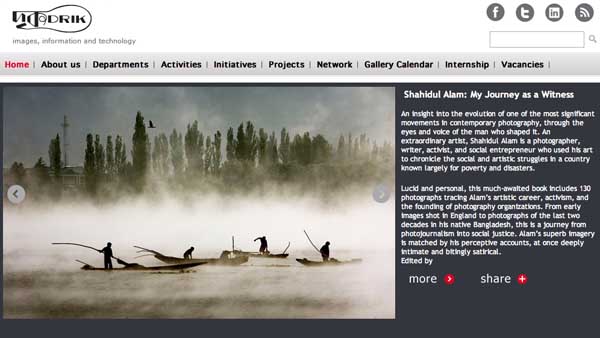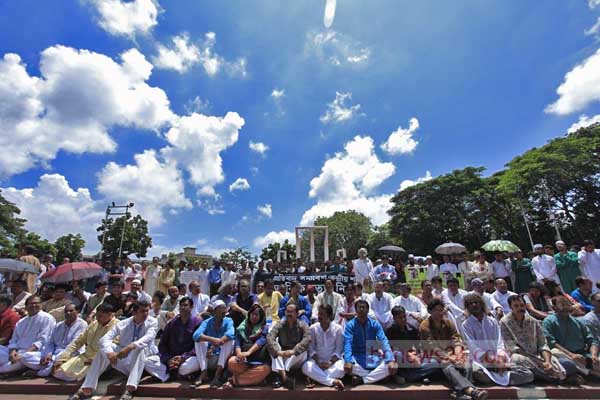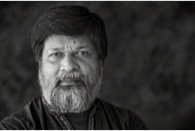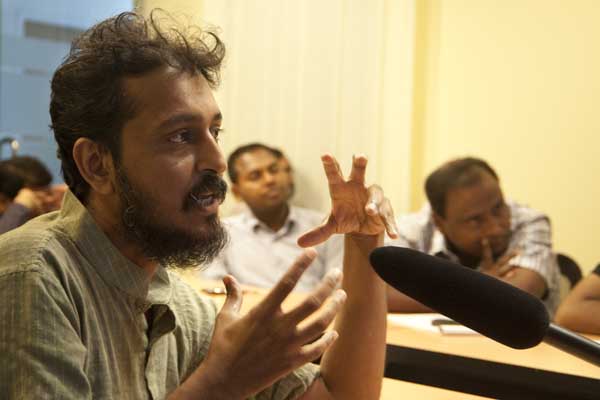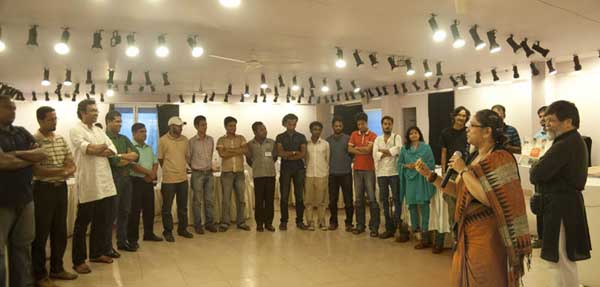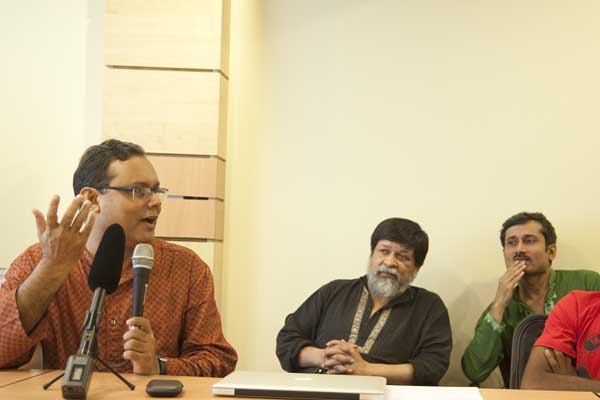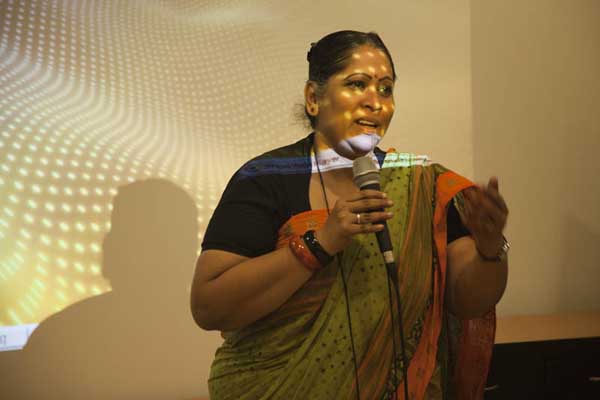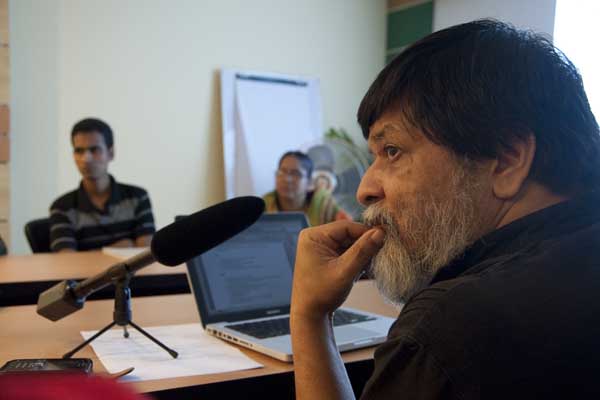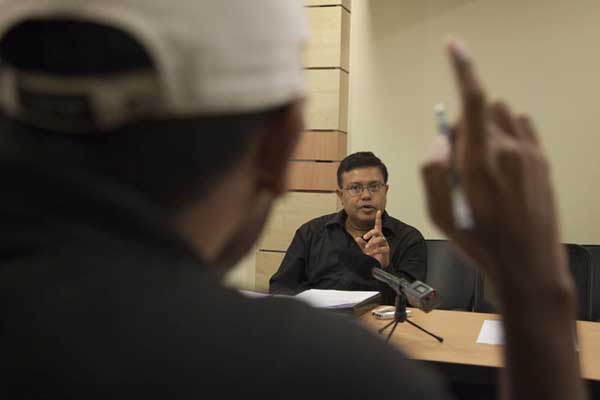?Into Exile ? Tibet 1949 ? 2009,? an exhibition organised by the Bangladeshi chapter of Students for a Free Tibet, in partnership with Drik, was symbolically opened by Professor Muzaffer Ahmed, former chairman of Transparency International?Bangladesh, on 1 November 2009. Despite pressure on Drik to cancel the exhibition, first by officials of the Chinese embassy in Dhaka, and later by Bangladesh government officials, special branch, police, and members of parliament, the opening took place outside, on the street, as Drik’s premises had been locked up by the police. The police had insisted that we needed official permission to hold the exhibition but were unable to produce any written document to that effect.
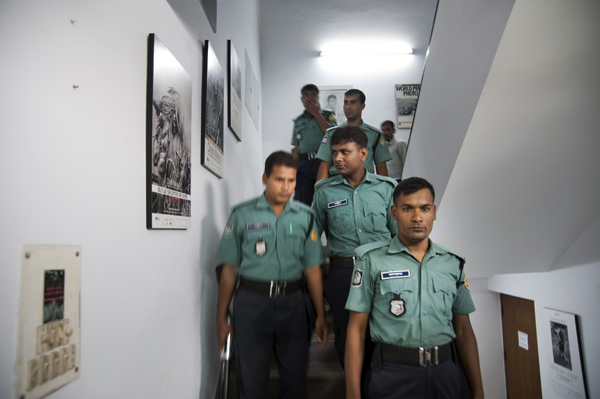 Police insisted on entering the private premises of Drik even after they were unable to produce any documentation to show they were authorised to do so. A day after blocking the entrance to the gallery to prevent an exhibition on Tibet from taking place, police said they had orders from the Home Ministry to guard the place for seven days. Dhaka, Bangladesh. November 2, 2009. ? Shehab Uddin/DrikNews/Majority World
Police insisted on entering the private premises of Drik even after they were unable to produce any documentation to show they were authorised to do so. A day after blocking the entrance to the gallery to prevent an exhibition on Tibet from taking place, police said they had orders from the Home Ministry to guard the place for seven days. Dhaka, Bangladesh. November 2, 2009. ? Shehab Uddin/DrikNews/Majority World
We went ahead with the opening as it is part of Drik’s struggle for the freedom of cultural expression. We are particularly affronted at being asked by officials of a foreign state, to cancel the exhibition. We strongly believe that governments should have the courage to present their views at cultural platforms and to try and convince people by arguing their case, in other words, acting democratically, rather than using intimidation and heavy-handed tactics.
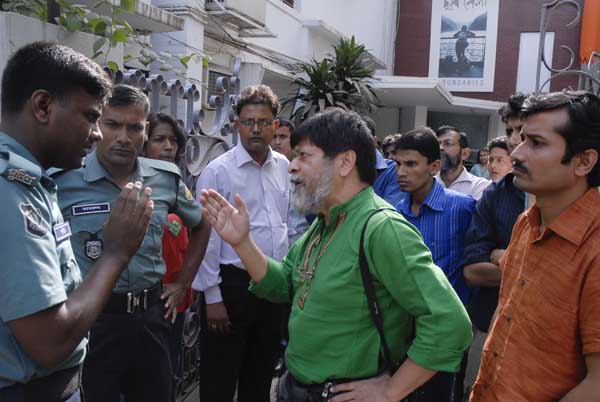 Shahidul Alam insisting that police leave the premises of Drik and not intimidate visitors to the gallery. Police positioned themselves outside the gate leaving some of their riot gear prominently displayed inside. Upon further resistance the riot gear was removed. 2nd November 2009. Dhaka. Bangladesh. ? Saikat Mojumder/DrikNews/Majority World
Shahidul Alam insisting that police leave the premises of Drik and not intimidate visitors to the gallery. Police positioned themselves outside the gate leaving some of their riot gear prominently displayed inside. Upon further resistance the riot gear was removed. 2nd November 2009. Dhaka. Bangladesh. ? Saikat Mojumder/DrikNews/Majority World
The forced closure of Drik affects many people, which includes members of the public, clients and those working at Drik. Public interest is our concern. We also want to continue working as an internationally acclaimed media organisation with both national and international commitments. Hence, having registered our indignance, at the actions of the Bangladesh government, and those of Chinese embassy officials we will be closing the exhibition 2 November 2009.
We express our thanks to members of the public and the media, for being present at the street opening, for demonstrating their deep disgust at governmental interference, and at their show of solidarity.
Stop Press: Police have been evicted from Drik and have positioned themselves outside the gate.

